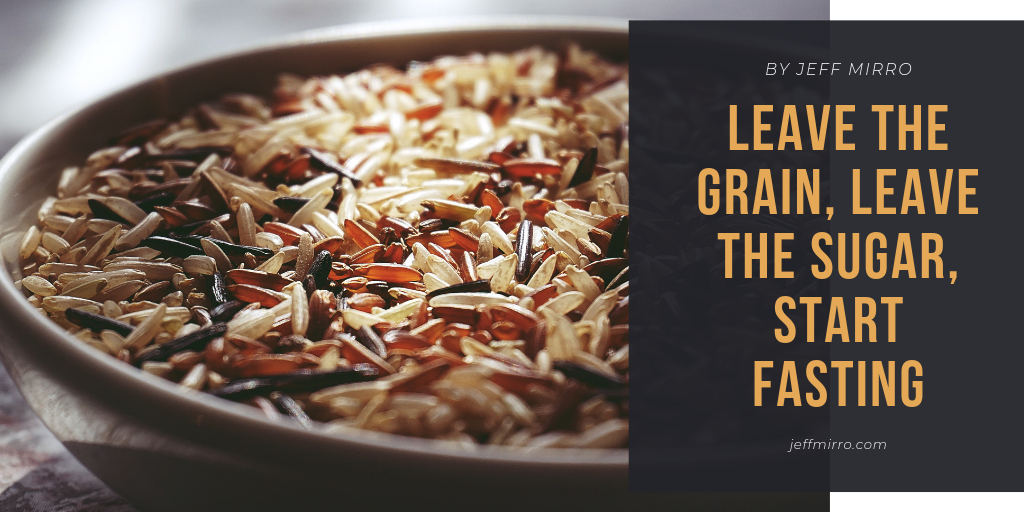Quit the bread. Seriously, if you could make one change to your life to benefit your health BESIDES intermittent fasting, it would be to cut out sugar and grains. That includes grains of all kinds.
Wheat is seemingly in everything, especially in packaged and processed foods. Bread is a staple of the standard diet, and it’s causing so many problems with obesity and inflammation. I live in northeastern Pennsylvania, and bread is the foundation of every meal in some way. I know that the rest of North America is not much different. From hoagies, (heroes or subs, if you prefer) to pizza, to strombolis, to calzones, to just your everyday deli sandwiches, and much more, bread is everywhere. And wheat is in everything: Crackers, chips, cereals, baked goods, pasta, and even things you wouldn’t expect like soups and salad dressings.
I’m not even going to say that the problem is fully genetically modified wheat and the glyphosate that’s in modern wheat, nor will I even say the main problem is gluten. Even non-glutinous grains are an issue in my mind, based on the research I’ve done. Speaking of that, here’s one of the best articles I’ve read on this subject: Why Grains are Killing You
All Grains are Bad
ALL grains are inflammatory, and not really meant for human consumption. They all spike your blood sugar on about the same level as sugar, which as we all know, is the absolute worst thing for your health. Sugar makes cancer cells grow, is extremely inflammatory, is the direct or indirect cause of virtually all major diseases in the world, and is the leading factor in the obesity epidemic. When you digest things like white flour and white bread in particular, your body breaks them down as if they were sugar. Wheat and other grains are almost as bad. I would eliminate sugar and all grains from your diet before you try eliminating or adding anything else. After a rough first week, and then a few more weeks of adjustment and healing, you will feel the difference, and your body will thank you for it.
Intermittent Fasting is Still the Most Important Thing You Can Do
Having said all this, the most important thing to your health is not what you take in, but the absence of taking anything in, and by this, I, of course, mean fasting. It’s been proven, by Cole Robinson and others who’ve experimented with this type of thing, that you could do extended fasts, or even one meal a day intermittent fasting for 23 hours a day, eat a meal of basically anything, even if it’s high in carbs and the bad stuff like sugar and grains I mentioned above, and STILL get some benefit from fasting. Your inflammation will still be lower, autophagy still kicks in to help you detoxify, and depending on the number of carbs you’re taking in, you still might be able to get into ketosis. Your weight might not move all that much if your refeed meal is extremely unhealthy, but your body fat will still probably go down a little bit. The bottom line is, fasting cures all, although you can greatly negate the effects of fasting by eating a crap diet when you do eat, namely one high in sugar and grains.
So to lose weight, and for overall health benefits, I’d recommend meal a day lifestyle with periodic 48-hour fasts, alternating between dry fasting, and fasting with snake juice (water, salt, potassium). And when you do eat, you can follow the guidelines found in the following post: How I Live My Life
To sum up those guidelines briefly, this comes down to eating fat, high protein diet, based around meat, mainly red meat, with moderate amounts of fruit and vegetables, and NO sugar or grains. Trust me when I tell you, that this is not an easy transition to make, especially if you’re a sugar, or bread addict, or a food addict in general. If you live to eat rather than eat to live, everything I say on this blog will be an immense challenge. But if you do follow this advice, your health will be much improved, and your whole life can be changed for tter in a matter of a few months.

